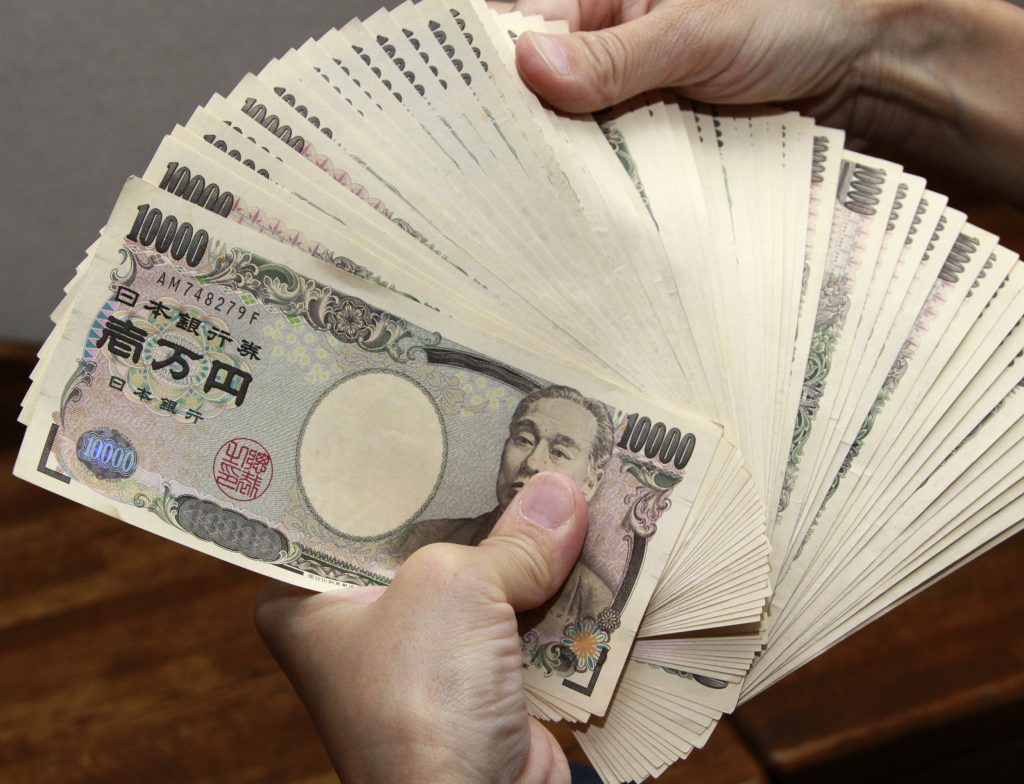
- ARAB NEWS
- 25 Apr 2024

Tom Graus London
Many Arabs have an accurate view of the size of Japan’s economy, a recent poll by Arab News and YouGov has discovered, but many also underestimate the country’s reliance on cash, revealing the paradox that lies at the root of that reliance.
The wide-ranging poll, which asked residents across the MENA region for their views on a host of questions related to Japan, found that awareness of the size of Japan’s economy — the world’s third-largest — was generally high, with 63 percent of respondents identifying it as being in the top five globally.
Awareness is higher among the older generation, with 68 percent of those over the age of 40 placing the country’s economy in the top five, compared to 58 percent of those aged 16 to 24.
Interestingly, the poll’s findings suggest that Arabs who have visited Japan are more likely to misjudge the size of the country’s economy. Only 48 percent of respondents who had previously been to Japan — four percent of all those surveyed — identified the country as having one of the world’s five largest economies.
The poll found that 67 percent of respondents correctly identified Japan as a member of the G20, but only 59 percent recognized Japan as a member of the G7 — a smaller group of the world’s largest economies.
In the latter case, there was a strong divergence between age groups, with 69 percent of those aged over 40 placing Japan in the G7 compared to only 48 percent of those aged 16 to 24.
However, by far the greatest misconception that Arabs have about Japan’s economy is its reliance on cash. Cash is still the most common form of payment in Japan, accounting for four out of every five purchases, but the majority of Arabs did not know this — with only 10 percent of the poll’s respondents identifying cash as the most common form of payment in Japan.
By contrast, 46 percent of respondents said credit cards were the prevalent form of payment, and more thought that cryptocurrency was most common — 12 percent — than chose cash.
In many ways, these results are unsurprising. As Anne Beade wrote recently in the Japan Times, the continued dominance of cash payments in Japan sits oddly with its “reputation as a futuristic and innovative nation,” especially given the speed with which other technologically advanced countries have adapted to the cashless society. As Beade notes, 90 percent of transactions in South Korea are now digital.
But Japan’s reliance on cash is also typical of one of the country’s central paradoxes — its combination of tradition and modernity. The reasons for the country’s continued reliance on cash are manifold — from Japan’s low crime rates to the ready availability of ATM machines. But, as Beade makes clear, a significant factor is Japan’s aging population, who are slow to adapt to change. According to data from the CIA World Factbook, almost a third of Japan’s population is over the age of 65. In Saudi Arabia, that figure is just 3.32 percent.
If Japan’s continued dependence on cash illustrates the tension that can exist between its aging population and its futuristic aspects, then there are also examples of the two forming a more harmonious relationship. At the Dubai World Congress for Self-Driving Transport on October 15, Toyota announced its intention to transform into a mobility company with an example of how new technology could help solve the challenges of Japan’s aging population.
Speaking of the island of Hokkaido, in the north of Japan, where railway services catering to the island’s aging population have shut down, Madali Khalesi, Vice President of Automated Driving at the Toyota Research Institute for Automated Driving Development, advanced self-driving cars as a solution.
“As time goes on you become more elderly, you are feeling less comfortable to drive your own vehicle, and in Japan in many cases, you have to hand in your driving licence,” he said. “So think about it: You don’t have a mode of transportation publicly, you can’t drive a vehicle, (but that) does not mean something has to give, right? And we believe the technology at least can help support that change.”
Arabs’ misconceptions about Japan’s relationship with cash are widespread but understandable, given the nation’s hi-tech image. But, in bringing to the fore these issues of tradition and modernity, such misconceptions unintentionally shine a light on one of Japan’s most beguiling paradoxes.